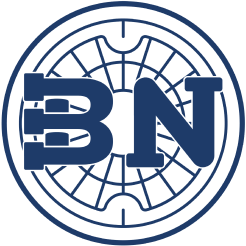Blocked drains aren’t just inconvenient—they’re costly, unsanitary, and can damage your home if ignored. In a city like London, where older drainage systems are common and extreme weather is becoming more frequent, preventing drain issues is more important than ever. Whether it’s your kitchen, bathroom, or outdoor drainage, adopting simple habits can make a significant difference.
Want to prevent blockages in London? At BN Drainage, we offer tailored drain maintenance services to keep your systems in top shape. Call us today on 0800 999 1769 or 0203 337 0349 or email info@bndrainageltd.com for expert advice and services across London.
At BN Drainage, we believe prevention is better than cure—our mission is to help homeowners across London maintain healthy, efficient drainage systems all year round.
Understanding Why Drains Get Blocked In London Homes
Drains are meant to carry wastewater smoothly away from your property. However, when certain materials build up or external factors interfere, blockages occur. Here’s what commonly leads to household drain issues in London:
-
Fats, Oils And Grease (FOG): These substances might look harmless when hot, but they solidify inside pipes, restricting flow. This is especially problematic in kitchen sinks.
-
Hair And Soap Scum: In bathrooms, hair binds with soap and other particles, forming stubborn clogs in shower and bath drains.
-
Wet Wipes And Sanitary Products: Despite what the packaging may say, these items don’t break down easily and often cause backups in toilet systems.
-
Tree Roots And Ground Movement: In older London neighbourhoods, underground roots can intrude into pipes, causing cracks and blockages over time.
-
Lack Of Maintenance: Over time, silt, debris, and organic matter accumulate. Without regular drain maintenance tips, blockages become inevitable.
Effective Drain Care In London: Prevention Tips For Homeowners
Keeping your drains flowing doesn’t require complicated tools—just consistent habits and a proactive mindset. Here’s how you can prevent blocked drains in London with everyday steps:
1. Watch What Goes Down The Sink
Use strainers to catch food scraps and avoid pouring grease or oil down your kitchen sink. Instead, collect fats in a container and dispose of them in the bin.
2. Install And Maintain A Grease Trap
For homes with heavy kitchen usage, especially those running small food businesses, a grease trap can capture FOG before it enters your drainage. This is a top tip under grease trap use best practices.
3. Conduct Routine Cleaning
Flush your drains weekly using a mix of hot water and mild detergent. For deeper cleaning, consider a monthly natural remedy—mixing baking soda with vinegar followed by hot water.
4. Be Smart In The Bathroom
Use drain covers to trap hair and clean them regularly. Also, only flush toilet paper down your loo. Avoid flushing cotton buds, sanitary pads, or nappies.
5. Schedule Regular Professional Checks
Even with all the right habits, hidden problems can still emerge. That’s why having experts perform a yearly CCTV inspection ensures peace of mind. Our drain maintenance guide in London is ideal for understanding what professional servicing includes.
6. Maintain Outdoor Drainage Systems
Remove leaves, twigs, and dirt from gutters and external drains, especially after a storm. Blocked gutters often lead to overflowing water near foundations, contributing to more severe drainage concerns.
7. Consider Rodent Prevention Measures
Rodents in drains can create obstructions and physical damage. Installing non-return valves or rat blockers can prevent these pests from entering the system in the first place.
Best Practices To Avoid Clogs In London Homes
For consistent results, follow these core methods to avoid clogs in London properties:
1. Stick To A Seasonal Maintenance Schedule
London weather varies throughout the year. In autumn, gutters clog with leaves, while in winter, freezing pipes become an issue. Prepare your drainage system seasonally to stay ahead of problems.
2. Educate Household Members
If you’re sharing your home with family or tenants, ensure everyone understands the dos and don’ts of using household drains. A shared sense of responsibility helps in keeping drains clog-free.
3. Use Eco-Friendly Drain Cleaning Products
Avoid harsh chemicals that damage pipes over time. Choose biodegradable, non-corrosive cleaning agents for your regular cleaning.
Also Read: Signs You Need Professional Drainage Help In London
Protect Your Home With Preventive Drain Care By BN Drainage
Blocked drains are more than a nuisance—they’re a threat to your comfort, property, and hygiene. But with consistent maintenance, awareness of what not to flush or pour, and timely professional checks, you can take control. At BN Drainage, we specialise in keeping London’s homes running smoothly with tailored solutions, expert inspections, and efficient unblocking services.
Whether you need help with emergency drainage, CCTV surveys, grease trap use, or seasonal drain care, our team is here to help. Don’t wait for a drain disaster to strike—reach out today.
Call us on 0800 999 1769 or 0203 337 0349 or email info@bndrainageltd.com to book a preventive maintenance service or get expert guidance for your property.
FAQs About Preventing Blocked Drains In London
1. What causes frequent drain blockages in London homes?
Most blockages are caused by fat, oil, and grease in kitchen sinks, hair and soap in showers, and the flushing of non-dissolvable items in toilets. Older plumbing systems and tree roots can also contribute.
2. How often should I clean my home’s drains?
Weekly hot water flushing and monthly deep cleaning with natural ingredients is a good routine. For best results, book professional drain servicing annually.
3. Is installing a grease trap necessary for homes?
While not mandatory for every household, it’s highly beneficial in homes with heavy cooking routines. It’s essential for commercial kitchens as per UK regulations.
4. What should I do if water is slow to drain?
Try flushing with hot water first. If the issue persists, avoid using the drain and contact a professional immediately to prevent a full blockage.
5. Can I prevent tree root intrusion in older properties?
Yes, regular CCTV drain surveys can detect early signs of root intrusion. In some cases, root barriers or pipe relining may be needed.

